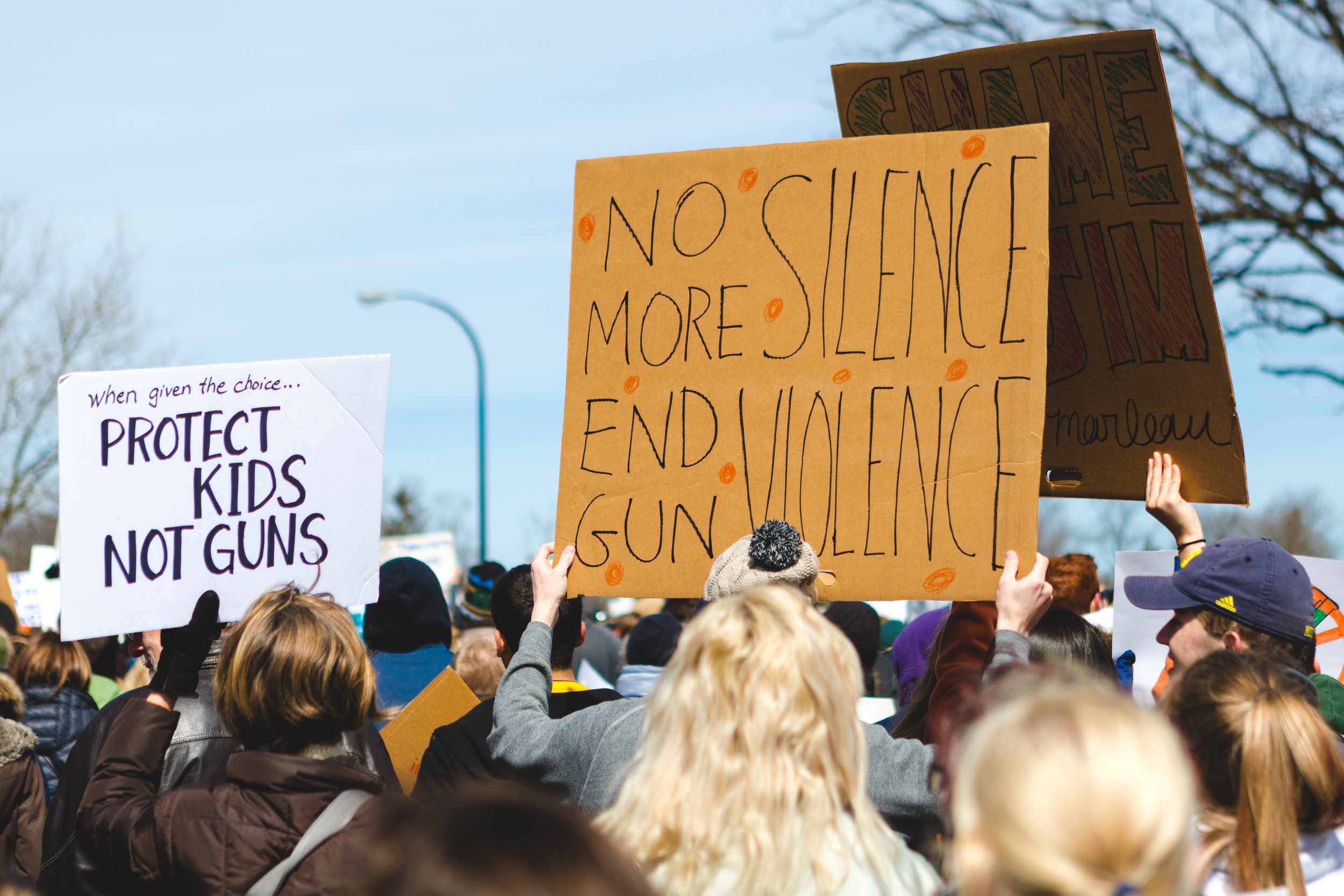
END gun violence
To effectively address and transform gun violence across the country, several legislative policies at the local, state, and federal levels have been enacted or are currently proposed. These policies aim to enhance gun control, fund violence prevention programs, and support community-based initiatives.
Federal
Bipartisan Safer Communities Act (2022): Provides funding for mental health services, supports school safety initiatives, and expands background checks for gun buyers under 21. It also allocates resources for crisis intervention programs and community violence prevention.
H.R. 8 - Bipartisan Background Checks Act (2021): Mandates universal background checks for all gun sales, including private transactions and sales at gun shows.
H.R. 1446 - Enhanced Background Checks Act (2021): Extends the background check review period for firearm purchases from three to ten business days.
Community Violence Intervention Act (2021): Proposes federal funding for community-based violence intervention programs, including funding for local organizations that provide direct violence prevention services.
The Victims of Crime Act (VOCA) Fix to Sustain the Crime Victims Fund Act (2021): Aims to increase funding for crime victim services, including support for individuals affected by gun violence.
State Level
California’s AB 2571 (2022): Prohibits the sale of firearms with designs that appeal to minors and enhances restrictions on firearm advertising.
New York’s NY SAFE Act (2013): Implements stricter gun control measures.
Illinois’ Gun Violence Prevention Grant Program (2021): Provides state funding for local organizations and programs dedicated to reducing gun violence and supporting victims.
New Jersey’s Gun Safety and Violence Prevention Act (2020): Includes measures such as expanded background checks, safe storage requirements, and funding for community-based violence prevention initiatives.
Local Level
San Francisco’s Gun Violence Restraining Order Ordinance (2020): Allows individuals to petition for gun violence restraining orders to temporarily remove firearms from individuals deemed a threat. Chicago’s Comprehensive Violence Reduction Strategy (2017): Integrates gun control measures with community-based violence prevention and intervention programs.
Los Angeles’ Mayor’s Fund for Gun Violence Prevention (2021): Provides funding for local violence prevention programs.Baltimore’s Safe Streets Program: A violence interruption program that mediates conflicts and prevent retaliatory violence.
The Office of Juvenile Justice and Delinquency Prevention (OJJDP): Provides federal grants for community-based violence prevention.
The Centers for Disease Control and Prevention (CDC) Violence Prevention Program: Allocates funding for public health approaches to violence prevention.
California’s CalVIP Program (2020): The California Violence Intervention and Prevention (CalVIP) program funds local violence reduction strategies.
New York City’s Crisis Management System (2021): Expands funding for community-based violence interruption programs.
Conclusion
The legislative policies and initiatives outlined here reflect a comprehensive approach to ending gun violence by enhancing gun control measures, funding violence prevention programs, and supporting community-based interventions. By building on these efforts and continuing to expand and refine these policies, we can work towards a safer and more equitable society.
